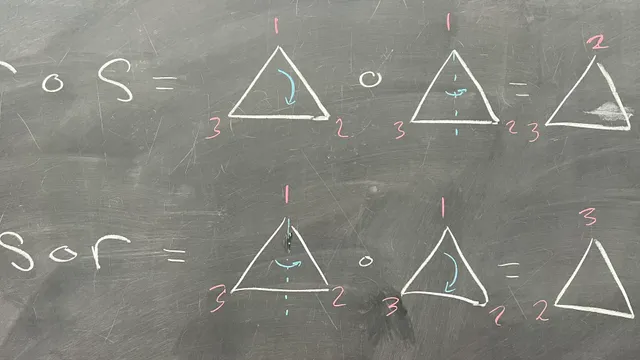Introduction to Group Theory 1
I am doing some research over the summer, and I wanted to explain what I am doing in a meaningful manner to my family and friends. I decided the best way to do this is to start from the ground up with Group theory, and work my way towards the specific corner of Representation Theory that my research is in. This article represents the first step in that journey. My goal is for everything to be accessible to a motivated high school (age 14-18) kid, as well as adults who haven't touched algebra in a few decades.
Analytics
Comments
5
Wonderful work as it gently walks a reader familiar or not, with group theory. I'd draw out the Mathematcians are lazy statement by introducing S_sub3 group as structure is emphasized here. Also, how about draw out the clock example into the general notion of modulars?
5.1
The explanation is reader friendly, but is overall generic.
5.5
OK article, but I don't appreciate the popup subscribe window appearing in the middle and then following me down the page as I scrolled. An obnoxious modern web practice that you should have disabled if possible. Does not detract from the article, but damn, it annoys me.
5.7
Nice little explainer of what a group is. Clean and clear.
The cubic equation in the beginning doesn't have a nice root, I'm disappointed.
6.8
The article was very clear! (I'm already familiar with groups, but the definitions seemed well explained with good examples)
I like the idea to include exercises at the end.
3.3
This article is very well-made. The writing style is conversational and approachable. Images are clear and placed well for rhetorical effect. Notation is used clearly and consistently. Aside from the choice to define "closed" at the end of the main definition, definitions are introduced just as needed. This is the first article of a sequence— it's clear from this writing that you have a coherent vision for it, and yet this piece stands confidently on its own.
That said, I think it does not reach the audience that it sets out to reach, and while the piece is outwardly friendly and accepting, it has a tone that actively undermines that expression. I'd rather not enumerate and explain all the passages that left me feeling unsettled (this would require a sheer volume of text that would overstate severity of the problem). Instead, I'll focus on just three:
1) The jokes about young people. In your introduction you mention that a part of your target audience is high-schoolers, so I find it weird that multiple jokes are made where the punchline is essentially 'but young people wouldn't know about that'. It's particularly tone-deaf for the article to be laughing about people not understanding things they haven't been exposed to, when it's explicit purpose is... to inform people of things they haven't been exposed to.
2) The way this article uses the word "mathematician". One of the better rhetorical devices honed by science communicators is a broad, inclusive use of the word "scientist". It is possible to appreciate the intensive sustained work of professional researchers, while also acknowledging that the scientific method is not some rarefied knowledge but is used by many people in even very casual settings. The word "mathematician" appears 6 times in this article; in the first 5 of them, it is used as an appeal to a (distant) authority. In particular, the possibility of the reader identifying as a "mathematician" is not only unexplored, but is implicitly discouraged by this framing.
3) The last words are "...should be reachable, if you understand the article." This is a turn of phrase that, in its own right, is not a problem. But the most memorable parts of any piece are its beginning and its end. I do not think it was wise for the article to use one of those spaces to cast doubt on the dedicated readers who stuck to the end.
I meant everything I said in the first paragraph. I have high standards for writing, and you are a good writer. Moreover, the care and joy you have for the subject shines through very clearly. You dedicated considerable work to write this article, focused on what would reach your audience as learners. It's just that for this one, that focus was too narrow, and lead you to miss how your words would reach them as people.
8.9
love the friendly casual style on the hard topic lol
